This is my first story for Qweekend, The Courier-Mail’s Saturday magazine. It appeared on the cover of the June 4-5 2011 issue.
Click the below image to read the story as a PDF in a new window, or scroll down to read the article text underneath.
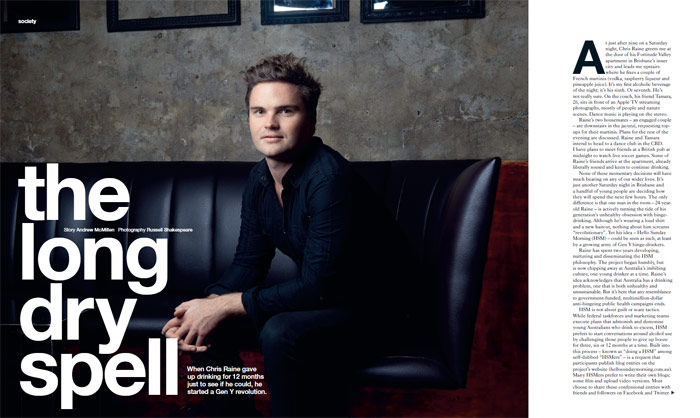
The Long Dry Spell
Story: Andrew McMillen. Photography: Russell Shakespeare.
When Chris Raine gave up drinking for 12 months just to see if he could, he started a Gen Y revolution.
++
At just after nine on a Saturday night, Chris Raine greets me at the door of his Fortitude Valley apartment in Brisbane’s inner city and leads me upstairs where he fixes a couple of French martinis (vodka, raspberry liqueur and pineapple juice). It’s my first alcoholic beverage of the night; it’s his sixth. Or seventh. He’s not really sure. On the couch, his friend Tamara, 26, sits in front of an Apple TV streaming photographs, mostly of people and nature scenes. Dance music is playing on the stereo.
Raine’s two housemates – an engaged couple – are downstairs in the jacuzzi, requesting top-ups for their martinis. Plans for the rest of the evening are discussed. Raine and Tamara intend to head to a dance club in the CBD. I have plans to meet friends at a British pub at midnight to watch live soccer games. Some of Raine’s friends arrive at the apartment, already liberally soused and keen to continue drinking.
None of these momentary decisions will have much bearing on any of our wider lives. It’s just another Saturday night in Brisbane and a handful of young people are deciding how they will spend the next few hours. The only difference is that one man in the room – 24-year old Raine – is actively turning the tide of his generation’s unhealthy obsession with binge-drinking. Although he’s wearing a loud shirt and a new haircut, nothing about him screams “revolutionary”. Yet his idea – Hello Sunday Morning (HSM) – could be seen as such, at least by a growing army of Gen Y binge-drinkers.
Raine has spent two years developing, nurturing and disseminating the HSM philosophy. The project began humbly, but is now chipping away at Australia’s imbibing culture, one young drinker at a time. Raine’s idea acknowledges that Australia has a drinking problem, one that is both unhealthy and unsustainable. But it’s here that any resemblance to government-funded, multimillion-dollar anti-bingeing public health campaigns ends.
HSM is not about guilt or scare tactics. While federal taskforces and marketing teams execute plans that admonish and demonise young Australians who drink to excess, HSM prefers to start conversations around alcohol use by challenging those people to give up booze for three, six or 12 months at a time.
Built into this process – known as “doing a HSM” among self-dubbed “HSMers” – is a request that participants publish blog entries on the project’s website (hellosundaymorning.com.au). Many HSMers prefer to write their own blogs; some film and upload video versions. Most choose to share these confessional entries with friends and followers on Facebook and Twitter. You could call it abstinence by social network.
Blogging is a request, not a demand. Some HSMers choose not to blog, in the same way that some partygoers refuse to stop drinking. Instead, they work through their HSM by keeping their cards close to their chests, and telling only their close friends. But those who do blog add to an online resource that – with each additional webpage visit, comment, Facebook “like” and retweet – infiltrates the culture.
As Raine mixes my second cocktail, I ask him if he’s had many doors shut in his face over the past few years. “Constantly. Of course,” he replies. “Even the idea of being abstinent for a short period is confronting [to some people]”.
Then it hits me – isn’t the founder and CEO of Hello Sunday Morning “binge-drinking”, according to the National Health and Medical Research Council definition of the term? He’s had more than four standard drinks in a night.
“All that kind of public policy is important, but it’s not really my cup of tea,” he shrugs. “I’m more interested in individuals working out what works for them. And tonight, having French martinis is working for me.”
Raine’s a realist. And besides, he’s just completed a three-month break from the booze. In fact, since he began waving the HSM flag in January 2009, he has spent 15 of those 29 months stone-cold sober. If anyone deserves a few casual martinis, it’s him.
++
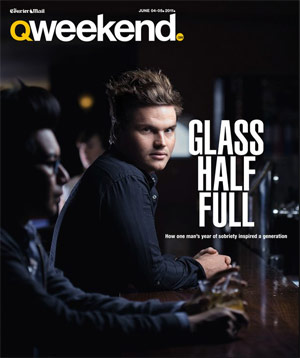 Christopher Keith Raine was born at the Royal Brisbane and Women’s Hospital on November 28, 1986. He has a younger sister, Jess, 22. Their parents, Ellen and David – both GPs – split when Chris was eight years old.
Christopher Keith Raine was born at the Royal Brisbane and Women’s Hospital on November 28, 1986. He has a younger sister, Jess, 22. Their parents, Ellen and David – both GPs – split when Chris was eight years old.
As a child, his first love was tennis. In primary school he would spend his lunch breaks with a ball, a racquet and a brick wall. Nothing else mattered. His father recalls that Chris “had a bit of McEnroe in him at one stage”. He routinely threw tantrums and launched his racquet over fences if he lost even a single game. Like his older half-brothers, Chris later boarded at Brisbane Grammar School in inner-city Spring Hill. Early on, a teacher’s offhand remark earned him the nickname “Nugget”, owing to his adolescent chubbiness.
The first time Chris got drunk was at his father’s third wedding. He was ten years old. “As a parent you hear about these things later on,” David laughs. “It’s amazing what goes on at the time.”
Chris Raine’s next formative experience with alcohol was when he was 13 and in Year 8. It was at a farewell party for his half-brother Andrew, who was leaving for Cambodia where he lived for a year as a junior diplomat. Chris “got written off” and embarrassed himself. He slept it off, then returned to boarding school.
His parents were vehemently opposed to excessive drinking. “Chris wasn’t allowed to drink [without our approval] until he was 18,” Ellen confirms. David was also very much against what he saw as the schoolies tradition “where they try to stuff as much alcohol into their systems as they possibly can”.
For a time, drinking and partying became Raine’s tennis; his obsession. There was no history of alcohol abuse in his immediate family, nor did he consider himself a problem drinker.
Raine’s entrepreneurial flair became apparent in Year 10 when he would smuggle $10 bottles of alcohol into his dorm and sold them for $20 each. This went on for six months, until he and most of his friends in their senior years progressed to obtaining fake IDs so they could drink in pubs. While Raine was never caught drinking on the school campus, his teachers might have been grudgingly impressed by the lengths to which he and his mates would go to sneak out of the dorm at night to attend boozy parties. Raine still relishes the chance to “push the social envelope” to see how far he can take things.
His academic results at school were never exceptional. “He spent 12 years not really knowing why he was at school,” mother Ellen says. “He thought it didn’t relate to his life [beyond school].” It was her idea for Raine to travel through South America for a year as an exchange student when he was 17. He recalls it was a time of “lots of drinking, lots of partying”.
On his return he began a Bachelor of Communication at the University of the Sunshine Coast (USC), also at his mother’s suggestion, and lived in his parents’ Caloundra apartment. He had no career plans, though he knew his talents lay in marketing because he’d always been a good communicator.
Raine hit what he calls “rock bottom” halfway through his degree after he broke up with a girlfriend. His parents were worried about him – he was depressed and drinking heavily, and often. He says he was stuck in a rut where his life had “no real purpose or vision”. Yet getting his heart broken was the impetus for him to climb out of the hole he’d dug for himself.
Simon Maher – a marketing and management student at USC – was Raine’s flatmate at the time. Maher had just gone through a difficult relationship break-up of his own when he first moved in with Raine. He says the pair of them shared a lot of thoughts, experiences and feelings at the time – unusual for two young men. Although there were times when Maher would arrive home and find his flatmate halfway through a bottle of tequila, he’d just as often be woken by a 5am knock on the door by Raine inviting him out on a morning jog.
“I developed a lot as a person, living with Chris. He challenges people in positive ways,” says Maher, who now works as a HR and marketing manager for Telstra and retains a strong friendship with Raine. “Sometimes he doesn’t even know he’s doing it.”
As a budding entrepreneur, Raine booked Mooloolaba’s Wharf Tavern for regular Thursday night alcohol-fuelled events for his fellow students. At 21 he became the venue’s marketing manager but says he found it unconscionable to participate in the exploitation of young drinkers.
Later, he hustled an internship at a Brisbane-based youth advertising agency called Fresh, his first job on graduating. It was here that he made his first pitch to a government client whose brief was to reduce alcohol-related violence among teens. “[But] none of what we were coming up with was going to change the way I drank,” he recalls. At the time Raine was drinking “quite a lot”, which led to another crisis of conscience.
His colleagues challenged him to come up with something better, so he decided to make it personal. Raine swore off alcohol for a year on New Year’s Day, 2009, just a couple of hours after midnight. He decided his findings should be made public, because he’d never heard of anyone sharing such an experience socially.
Naming his blog Hello Sunday Morning, he wanted it to be “something positive, fun, lighthearted, and focused on individuals”. “It was like ’carpe diem‘, you know?” he says. “Hello Sunday Morning, for me, was a call to action. It’s about making the most of every day, not just Sunday. You only have one opportunity to make the most of your life. And it all starts with ’hello’.”
++
Raine was a barely competent blogger at first. His web entries were brief, shallow and gave the impression he wasn’t too keen on teetotalling. But he was just too proud to back down in front of his mates or, more importantly, to reveal the truth about himself.
His first entry, grandly titled “The Odyssey Begins”, reads:
“[It’s] Sunday morning and I am actually sitting at my desk, typing in a mildly coherent fashion on my laptop … as apposed [sic] to being completely hungover, bedridden and dreading doing absolutely anything except lay [sic] in my bed and eat KFC. This is a blog about what crazy things can happen to a normal, social, 22-year-old when they don’t drink alcohol for an entire year. It is a real-time look into the wonderful Australian pastime of drinking through the eyes of someone who isn’t.” – January 11, 2009
Unexpected challenges soon cropped up. Just a week into his year of sobriety, Raine was dumped by another girlfriend.
“There would be nothing more I would like to do right now than go straight to [a bar] and write myself off on tequila shots,” he wrote. “But I can’t, so I type. It’s a strange place, having to sit in your own emotions.” – January 18, 2009
In the same blog entry, he confessed he had been dependent on the relationship with his ex-girlfriend because it meant he didn’t have to deal with the awkwardness of chatting up other women without the aid of liquid courage…
“I don’t think I ever actually learnt how to socialise with girls, sober. I mean, I’m good at talking to women. I have lots and lots of women friends, but when it comes to putting the moves on – horrible. What I don’t understand is: why aren’t young men taught how to communicate with women? 1. There would be less violence. 2. People would drink less, and 3. Kebab sales would plummet.” – July 28, 2009
Rather than suffering in lonely silence, during his HSM abstinence adventure Raine chose to put himself in social environments on a regular basis. He was going out on most weekends, taking notes and blogging all the while. By April, his new role as a sober observer led to an epiphany – while he was watching his hero Michael Franti, an outspoken 45-year-old American musician and social justice activist, perform at a festival in Byron Bay, northern NSW.
“In the past three months I have gone through a lot of realisations and I feel that Hello Sunday Morning is my life’s purpose. Even if it is small now, I feel like we are making a bit of a difference. I feel so good when people tell me that it makes them think about their own actions around drinking. It makes me believe.” – April 15, 2009
Over the next few months, Raine’s passive observations of drinking culture metamorphosed into deep, detailed essays – on drinking, social interaction, sobriety – which showed how seriously he now took his role. He left Fresh in September that year to give HSM his full attention and by November, five of his close friends had agreed to undertake their own HSMs. Their support strengthened his resolve.
“I’m humbled by the willingness of young people to stand up and make a choice not because they have to, but just because they believe in a better way,” he wrote. “They believe they can challenge those belief systems around alcohol which have been handed to them from one generation to the next. More importantly, they believe they can change it for the generations that will follow them. We are not many. But we have conviction and purpose, which is stronger than any number.”
Against the odds – and in defiance of his peers’ initial disbelief – Raine completed the year-long dry spell, and then decided to postpone that first drink a little longer, despite being out at a bar surrounded by friends…
“I didn’t end up drinking at 2am because I didn’t think it would add any value to the experience I was having. I look forward to giving it a ’yes’ sometime soon, but it will have to be for the right reasons. Wow. One year. One year of change, evolution and freedom. I’m 23 years old and my life has never been more full.” – January 1, 2010
++
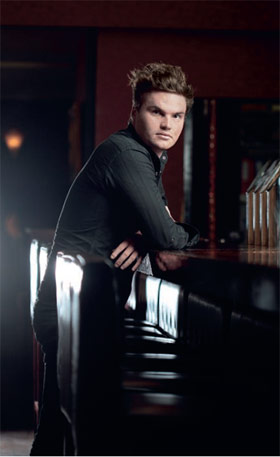 Our martinis drained, Raine, Tamara and I catch a taxi to Rosie’s, a club on Edward St in Brisbane’s CBD. We head downstairs where dozens of young adults are dancing to dubstep (a sub-genre of electronic dance music) beneath strobe lights. We sip mixed drinks and take in a few songs. I leave them at the club and meet friends nearby at Brit-themed pub the Pig ‘N’ Whistle. After watching two full games of live English soccer, I walk home to New Farm. It is 4am.
Our martinis drained, Raine, Tamara and I catch a taxi to Rosie’s, a club on Edward St in Brisbane’s CBD. We head downstairs where dozens of young adults are dancing to dubstep (a sub-genre of electronic dance music) beneath strobe lights. We sip mixed drinks and take in a few songs. I leave them at the club and meet friends nearby at Brit-themed pub the Pig ‘N’ Whistle. After watching two full games of live English soccer, I walk home to New Farm. It is 4am.
Over the course of the night I’ve consumed two French martinis, a vodka raspberry, a gin and tonic, two pints of full-strength beer, a Coca-Cola, and two pints of water – about eight standard drinks, all up. By government definition, it’s a binge; by mine, an anomaly. I’m usually in bed, sober, by 1am.
On the walk home, my low-level booze buzz has been replaced by overwhelming exhaustion. I think of the parallels between Raine’s experiences with alcohol and my own. Though he’s a year older than me, we’ve both made poor decisions under the influence. He’s lost his licence for drink-driving. I was once taken home in the back of a police car as an underager. But as Raine points out, we’re no better or worse people for having made these decisions.
Since starting Hello Sunday Morning, Raine’s persistent networking – hustling, as he calls it – means he has positively influenced hundreds of young lives while also building a business around his idea. HSM is now primarily funded by The Australian Centre for Social Innovation which, in turn, is funded by the South Australian Government. TACSI’s $200,000 contribution to HSM last year allowed Raine to hire a full-time operations manager, plus a handful of part-timers specialising in research, web creative (programming, design and branding), membership coordination, and university relations. Raine halved his own salary so he could afford those five part-timers, although he says they’re still not paid half what they deserve.
Michael Thorn, CEO of the Canberra-based Alcohol Education & Rehabilitation Foundation (AERF) – who recently awarded HSM $20,000 in funding for a web documentary series – describes HSM as a logical step. “It’s dealing with a demographic where we know there are serious causes for concern,” he says. AERF research published in April this year found that most Generation Y survey respondents drink specifically to get drunk. “Over one-third (35 per cent) of all drinkers consume alcohol for this purpose,” the survey said, “but [it particularly] applies to the majority of Gen Y drinkers (61 per cent).”
HSMer Anthea Flint, 22, fell firmly into that category. She got drunk for the first time at 14 after raiding the liquor cabinet at a mate’s house. After that she drank every weekend until one too many public mistakes under the influence led her to HSM at age 21. During her seven months of sobriety, she saved money, travelled to India, regained her physical fitness and is finishing a degree in PR and advertising at Queensland University of Technology.
Flint remains a strong advocate of HSM. “It’s exciting to be a part of this as it gains momentum and as you see the reactions of other people to what you’ve achieved through not drinking,” she says. “It makes you feel like you’ve achieved something, and you’re a part of something really special.”
More than 800 Australians like Flint have publicly committed to taking a break from drinking through HSM. One of them, Jill Stark, a 35-year-old health reporter for The Age in Melbourne, condensed her blog posts into a feature story run by the newspaper in April. It summarised her own HSM experience, an initial three months without alcohol.
“Politicians, drug and alcohol sector workers, teachers, mental health experts – they’re all wringing their hands about this booze-soaked culture that we have in this country,” she says. ”Everyone talks about changing that culture, but no-one really knows how to do that.
“HSM is about changing a culture. You do that by engaging the people that you’re trying to reach with the problem. I’m not sure why it works, but it does. Possibly because young people can see someone like Chris, who looks like them, is the same age as them, and came from the same background. Even those who haven’t taken up HSM are looking at their own drinking habits and saying, ’Hold on, maybe I could do this a better way’.”
++
Footnote: As of June 4 2011, I’ve undertaken a three-month HSM of my own. You can read about that on my HSM blog.
++
This story in Qweekend was accompanied by a smaller, summarising story inside the main section of The Courier-Mail, on page 18. Article text below.
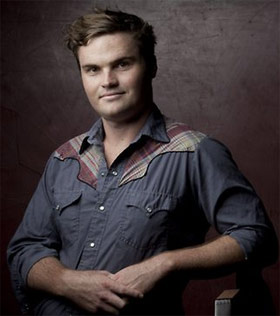 Social group leaving hangovers behind
Social group leaving hangovers behind
ALL across Queensland on New Year’s Day, the words “not drinking again” escape the lips of innumerable hangover sufferers.
Most of them soon back down in the face of both social pressures and a desire to regularly imbibe alcohol that seems practically etched upon the DNA of our national identity.
A beacon of hope in dark, drunken nights is named Chris Raine. He uttered that commitment on January 1, 2009, and kept his word for an entire year.
Then 22 years old, Raine adhered to the straight and narrow through what could be called abstinence by social network. Rather than carry it close to his chest, he opted to create a blog and document his experience online.
Raine’s curiosity toward Australia’s cultural obsession with alcohol – and his desire to subvert that culture – was dubbed ‘Hello Sunday Morning’. Now, two and-a-half years later, Raine’s “HSM” community now numbers more than 800.
Not all of them blog about their experiences on the HSM website, but many do. In turn, its word-of-mouth marketing approach propels Raine’s message deeper into Australian culture with every subsequent blog comment and pageview.
Raine, now 24, and living in Fortitude Valley calls HSM “an opportunity for anyone who is ready to take a three-month break from our drinking culture and find out what life is like without a hangover”.
It’s not a life-long abstinence movement. Many who undertake an HSM a nominal period of three, six or 12 months without alcohol find that, once they return to the drinking scene, their relationship with alcohol has significantly changed … for the better.
Ask 32-year-old Shane Yearbury, who is midway through a six-month break from booze.
Previously, Yearbury business manager at a Motorama car dealership in Moorooka had subscribed to the “weekend warrior” mentality for over half his life.
Since signing on to HSM in March, his perspective has shifted and already the benefits are apparent in his work.
“I noticed an increase in productivity as soon as I stopped (drinking). I wanted to be involved in every process that we have here,” he said.
Raine’s long-term goal is to halve Australia’s cultural dependency on alcohol. If that seems a tall order, consider that, just over two years ago, the concept of HSM was real for just one person: him.
Now, it’s a part of daily life for hundreds of former binge drinkers.
For more on Hello Sunday Morning, visit hellosundaymorning.com.au.
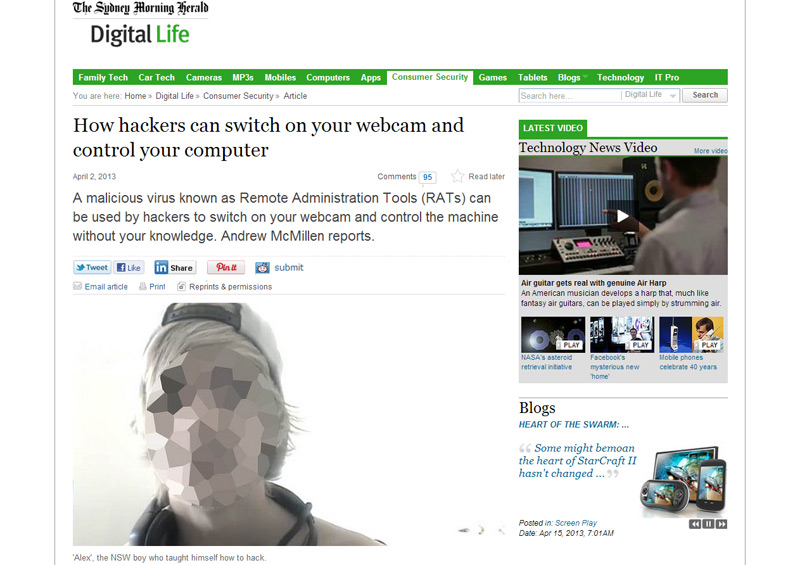
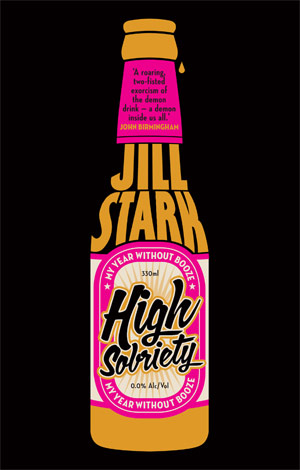 Scottish-born journalist Jill Stark was a health reporter with a blind spot: despite writing about Australia’s binge-drinking culture for The Age newspaper, she would regularly drink to excess, as she’d done since her teens.
Scottish-born journalist Jill Stark was a health reporter with a blind spot: despite writing about Australia’s binge-drinking culture for The Age newspaper, she would regularly drink to excess, as she’d done since her teens.



 Social group leaving hangovers behind
Social group leaving hangovers behind